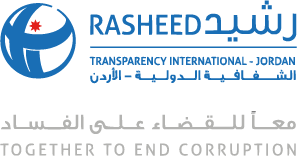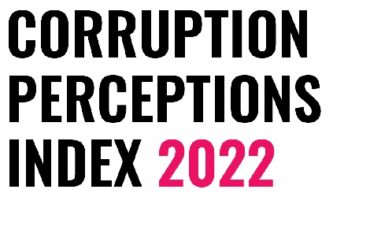- Jordan gained one score, 49 out of 100 in the Corruption Perceptions Index, and is now ranked 58th country in the world.
- Jordan kept the 4th place in the Arab region, after the United Arab Emirates, Qatar and Oman, and matched Saudi Arabia in the total score.
- Jordan advanced in the World Economic Forum and the World Competitiveness Yearbook measurements
The Jordanian chapter of Transparency International, Rasheed for Integrity and Transparency has announced the launch of the Corruption Perceptions Index for the year 2018. Since its inception in 1995, The Corruption Perceptions Index, Transparency International’s flagship research product, has become the leading global indicator of public sector corruption. The index offers an annual snapshot of the relative degree of corruption by ranking countries and territories from all over the globe.
Gaining only one mark on the 2018 Index, Jordan yields a score of 49 out of 100. This slight increase is due to the criteria listed under the World Economic Forum Executive Opinion Survey, and the World Competitive Yearbook, which cover the outcome recognition of the automation of licenses and e-payments, as well as bribes and tenders control.
Jordan’s score was based on eight sources that measured bribery, transfer of public funds, exploitation of the public office for personal gains, favoritism and nepotism, the Rule of Law, the government’s ability to implement integrity, the prosecution of corrupt people, the financial disclosure, codes of conduct activation, such as management and control over conflict of interest, access to information and good governance.
Aiming to consolidate the national efforts towards strengthening the good governance pillars, which are integrity and Rule of Law, Rasheed (TI-JO) has launched in 2018 its ‘Jordan’s Transparency Compass’ and ‘The Shadow report on Sustainable Development Goals’, that targets ‘Peace, Justice and Strong Institutions’. Both initiatives were proposed a set of recommendations to the relevant partners.
To make real progress against corruption and strengthen democracy in Jordan, Rasheed (TI-JO) calls on the government to:
- Ensure the financial and administrative independence of the regulatory, supervisory and law enforcement authorities, such as the Audit Bureau, Integrity and Anti-corruption Commission etc.
- Align all legislations in accordance with the UN Convention against Corruption.
- Review legislations to ensure no restrictions are set on the freedom of expression and access to information.
- Pursue all the corrupt people and ensure fair trials.
- Disseminate data relating to final accounts, especially those of defense and security, and provincial councils budget as a mean to consolidate decentralization.
- Publish the information listed in the disclosure declarations electronically.
- Review the legislations involving beneficial ownership and tightening penalties on undisclosed information requested by law.
- Implement and regularly update the ‘Open Data’ initiative.
- Enabling the civil society to activate their role in reinforcing integrity and accountability.
- Secure whistleblowers protection.
Compared to the rest of the Arab region countries, the fact that the UAE and Qatar have achieved the highest scores, is largely due to the level of their fundamentals and human development aspects, namely the effectiveness of public administration, health and education and their high level of GDP (Gross Domestic Products). The Qatari government was also able to abandon several levels of bureaucracy as a mean to strengthen the anti-corruption efforts, however, it still will be under scrutiny in the coming years along with the UAE, Jordan and Lebanon, considerably for being relatively stable countries.
Denmark and New Zealand top the index with 88 and 87 points, respectively. Somalia, South Sudan and Syria are at the bottom of the index, with 10, 13 and 13 points, respectively. The highest scoring region is Western Europe and the European Union, with an average score of 66, while the lowest scoring regions are Sub-Saharan Africa 9average score of 32) and Eastern Europe and Central Asia (average score of 35).
The highly ranked countries share similar characteristics and features including
- Open government
- Freedom of journalism and freedom of expression
- Independent judiciary
- Civil liberties
- Access to information
- Democratic practices of various forms
- Transparency in budget planning and disbursement.
On the other hand, the lowest countries in the Index share features such as:
- Weakness of institution
- Absence of Rule of Law
- Spread of impunity
- Restriction and suppression of public freedom
- Weakening of civil society institutions
- Lack of transparency in budget planning and disbursement.
‘Our research makes a clear link between having a healthy democracy and successfully fighting public sector corruption,’ said Delia Ferreira Rubio, chair of Transparency International. ‘Corruption is much more likely to flourish where democratic foundations are weak and, as we have seen in many countries, where undemocratic and populist politicians can use it to their advantage.’
Transparency International has focused on a clear global message this year that is based on a direct connection between implementing democracy and fighting corruption successfully, including political and social rights and democratic practices, challenges involving the right to expression, political participation and citizenship.




